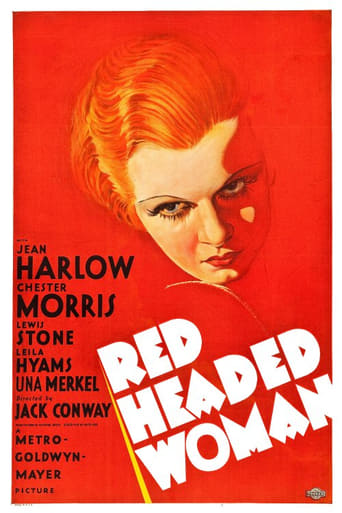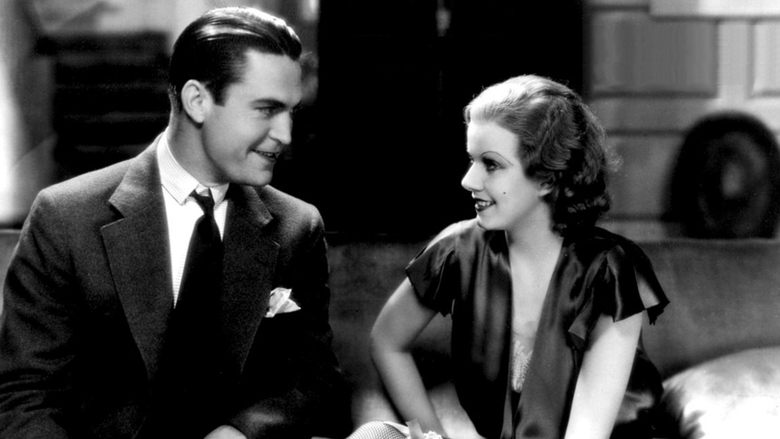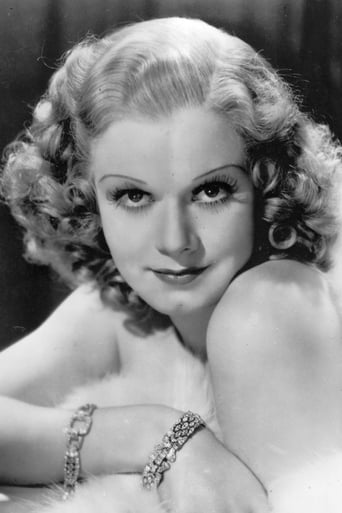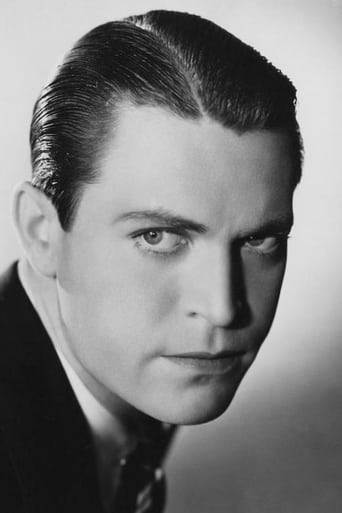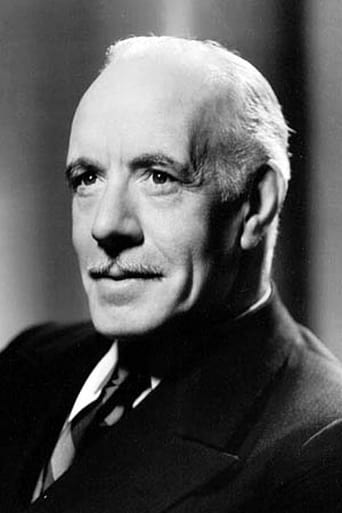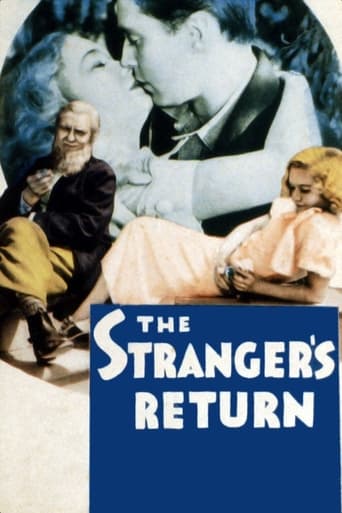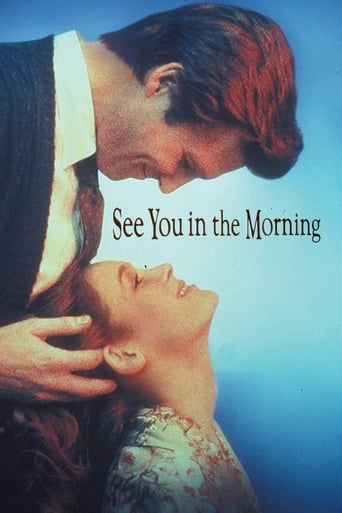Red-Headed Woman (1932)
Lil works for the Legendre Company and causes Bill to divorce Irene and marry her. She has an affair with businessman Gaerste and uses him to force society to pay attention to her.
Watch Trailer
Free Trial Channels
Cast


Similar titles
Reviews
It's no definitive masterpiece but it's damn close.
Great example of an old-fashioned, pure-at-heart escapist event movie that doesn't pretend to be anything that it's not and has boat loads of fun being its own ludicrous self.
The first must-see film of the year.
Excellent and certainly provocative... If nothing else, the film is a real conversation starter.
This is why some of us love the pre-code era so much: only then (and not until much later) could you hear a line like "I'm so happy: I'm in love and I'm going to get married" - referring to two different men in a woman's life (who is already married to a third one)! This picture is fast, funny, raw, provocative and adult; in other words, pre-code to the bone. I personally consider Leila Hyams (playing the good wife) more beautiful than Jean Harlow (playing the floozy to end all floozies), but that's a matter of taste. Una Merkel is a joy, as always, as Harlow's pal. *** out of 4.
Shortly before Mae West fizzled the screen with Paramount's 1933 releases of both SHE DONE HIM WRONG and I'M NO ANGEL, Jean Harlow (1911-1937) starred in a somewhat daring product titled RED-HEADED WOMAN (Metro-Goldwyn-Mayer, 1932), directed by Jack Conway, with screenplay by Anita Loos, from the book by Katherine Brush. It was Harlow's most breakthrough, pre-code production for its time. While such a title that might have been better suited for comedienne, Lucille Ball, a decade later, the situations on the other hand depicted in this screenplay is another story. Oddly enough, RED-HEADED WOMAN was labeled into Harlow's character, whose earlier movie title, PLATINUM BLONDE (Columbia, 1931), for which she also appeared, has become her lifelong trademark slogan. Though she did retain her blonde hairstyle throughout her short-lived movie career, as a "red-headed woman," Harlow shows she's not just another blonde but a sex-craved girl who's loose morals are simply "red hot." As an off-screen male vocalist sings the title song during the opening credits (and visually reprized later on), the story introduces Lil Andrews (Jean Harlow) in a beauty parlor getting her hair dyed red and then buying a new sexy transparent dress at a department store to impress her office employer, Bill Legendre (Chester Morris). Working as his secretary for two months, and knowing full well that he's happily married to his wife, Irene (Leila Hyams), who happens to be out of town in Cleveland with Bill's Aunt Jane (May Robson), Lil takes it upon herself to take some letters work to his home as a friendly gesture. In doing that, she catches Bill off guard and comes on to him. At first Bill resists her, but weakens through a series of kisses. His weakness leads to a surprise early arrival by Irene later that night, for which Lil makes a drastic exit from Bill's home hours after her arrival. Hearing the news and hoping to have the marriage saved, Bill's father William Legendre Sr. (Lewis Stone) arranges to have "a girl like that" transferred to the Cleveland office. With Lil refusing to part with Bill, the young adulteress succeeds in having the couple divorce, with Bill not only becoming her husband, but arranging for them to take up residence in a home directly across the street from his ex-wife. Lil, now affectionately called "Red" by Bill, does everything possible breaking into high society and meeting the right kind of people, even to a point of phony tearful outbursts. When Lil finally tires of Bill and her marriage, she soon finds other interests.Though there are serious overtones found in RED-HEADED WOMAN, especially moments involving the poor wife (Hyams), it's virtually a comedy of loose immorality and double-meaning dialogue told from the secretary's point of view. Una Merkel's Sally offers typical best girlfriend/roommate support whose character virtually gives surprising gasps throughout much of Harlow's proceedings. Harlow and Merkel certainly must have gotten some gasps from critics and theater patrons alike during their negligee stripping sequence by which the camera shifts upward to hide the proceedings.Also in the cast is Henry Stephenson as Charles B. Gaerste, a conservative friend of the Legendre family, who falls victim of Lil's girlish charms, and Charles Boyer playing Gaerste's chauffeur. Although Boyer, early in his career and slightly unrecognizable, has little to do, he does take part in the important epilogue set two years later in Paris for a very much surprised finish. Harvey Clark (Fred); William Pawley (Al, Lil's bootlegger boyfriend); Henry Armetta (The Waiter) and Edgar Norton (The Butler) round up the rest of the cast.When I first stumbled upon RED-HEADED WOMAN, it was while attending the New York City revival movie house of Regency Theater located on Broadway and 68th Street around 1980. Having no knowledge of what's now categorized as "pre-code" movies, I was very much surprised by this one, especially the fact it was released at all. Aside from that, I also observed reactions from others in attendance, and at one point during the midway point, noticing an middle-aged man walking out of the theater saying angrily to himself, "No morals. No morals!" Aside from seeing other patrons doing the Una Merkel "gasps" reactions themselves, the biggest roar of laughter took place in a scene where Gaerste (Stephenson) is shown by Bill how he's been duped by Lil while showing him some still photographs taken by a private detective indicating her activities, literally, behind his back! Four years later, Jean Harlow assumed the profession of secretary once again in WIFE VS. SECRETARY (1936), opposite Clark Gable, Myrna Loy, James Stewart and May Robson. As much as that title might have been appropriately used over RED-HEADED WOMAN, the 1936 drama, produced after the production code was enforced, was very much opposite in tone. Unlike the sex-starved, bra-less Lil Andrews, WIFE VS. SECRETARY shows Harlow off in a totally different, most refined style instead, which makes the 1936 movie a very interesting treat to behold on Harlow fans.Years later, RED-HEADED WOMAN surfaced on cable television, including Showtime (1984), Turner Network Television (1989-1992), before becoming a permanent fixture, thus far, on Turner Classic Movies. Formerly distributed to home video as part of the Forbidden Hollywood series, RED HEADED WOMAN has become available on DVD, with WATERLOO BRIDGE (Universal, 1931) on its flip side. Due to the boss and secretary theme, on a personal level, RED-HEADED WOMAN should have been placed as a companion piece with another pre-code product, BABY FACE (Warner Brothers, 1933), starring Barbara Stanwyck and George Brent, instead. (***)
Ah, pre-code Jean Harlow, what a gift. I've studied her very short career and I much preferred her earlier work playing strumpets instead of the later attempts to make her a leading lady. Red-Headed Woman is her best film because she simply pulls no punches.Based on the book by Katherine Brush and adapted by Anita Loos, Red-Headed Woman finds the usually blonde Harlow playing carrot-topped Lil Andrews a happy, mischievous gold-digger who's hours of enjoyment come from withering the inhibition of married men. It is all an effort to climb the social ladder, of course, and she won't stop until she gets there. That's why she hooks up with Bill (Chester Morris), her boss, a happily married man who is passionately in love with his wife Irene (Leila Hyams) but who can't help himself when Lil throws herself into his arms. She convinces Bill to divorce Irene, not because she loves him but because it will get her in with the "in crowd". But Bill's society friends don't feel the need to associate with a tramp and Lil tires of her new husband and tries another target - his best friend Charles. He wants nothing to do with her but she marches ahead anyway and eventually he melts. Bill isn't so unhappy with the results because it gets Lil out of his hair and he can get down to the business of regrouping the shattered bits of his marriage to Irene.We understand what makes these men melt. We get that sense right from the beginning in a close-up of Harlow's gorgeous legs as she puts a tiny picture of Bill in her garter. She has a way with men by pushing herself against them. She doesn't lay back as an invitation, she thrusts herself upon her prey, kissing them and pressing herself against them like a predator. There's a look in her eyes and a tremble of her bottom lip, a turn of her hip that we sense she has worked to perfection. Her slight body, short stature and little girl voice suggest to her prey a woman who is naive and easily taken. She has a perfected way with men that makes even us in the audience tremble.There are not wounds to Lil, not shattered past that makes her this way. She's sexy, she likes and it and she likes what it does to men. Harlow displays such a joy at decimating a man's moral wall that for a while, we are happy to go along. We can't believe that these men would be such dopes but if you study her body language you can see the seductive power. Her performance is not that different from another gold-digger, the one played by Barbara Stanwyck a year later in a film called Baby Face. In that film, an equally trashy Stanwyck literally sexes her way from the gutter to the gold, seducing one man after another. But Stanwyck's Lily Powers had a reason for her machinations - she was trying to pull herself out of the gutter of prostitution provided by her no-good father. Harlow's character has no such reasoning, she just wants to get to the top because she has the organic tools to do so. She laughs at her seductive powers when they work but she gets vindictive when they don't.There is only one weakness in the film and that comes at the end. We meet up with Lil two years later at a horse track in Paris where she has taken a new lover and the film ends apparently (and abruptly) on the happy note that Lil's pursuits will continue. She has occupied our minds for two hours as such a destructive force that we want some sort of satisfaction and the film ends without a resolution. That doesn't speak to Harlow's performance just to some bad writing. Harlow's performance is an act of depraved giddiness but as the film goes along we begin to sympathize with those she is attempting to destroy. There comes a point at which every time she shows up in a doorway, we feel pity for anyone who tries to leave.
The face of Jean Harlow is her real stage and probably even overshadows her body, perhaps except her legs, and especially for those who are not sufficiently served with signs but want to proceed to their objects. In this respect, Harlow represents the complimentary opposite of Monroe, whose stage is her body, and in such a way that her face, to a certain degree, is nothing but mimicry of the body. Therefore, it is not a wonder at all, that the face of Harlow stands the make-up - the glutamate of the mimic sign-carrier -, but not the mask. Imagine Jean Harlow with a porcelain head like the one that Pasolini had modeled in "Edipo Re" for Silvana Mangano! It is Harlows's face which acts first and foremost, similar to the acting of Lugosi's eyes, and not the body like that of Monroe which leads each debauchery ad Absurdum; a face which does not communicate and is thus almost superfluous. One watches Harlow when she kisses: She does not do that with self-dissolving fervor, but with that rascal-like smiling, in which is already anticipated what comes later. In her love, there is no ardor which drags both persons down to the bottom of the maelstrom, but the Eternal Recurrence of The Same which only enables the security of the moment. Exactly because of that there is no contradiction in her appearance, either. She represents the type of woman that every man wants.

